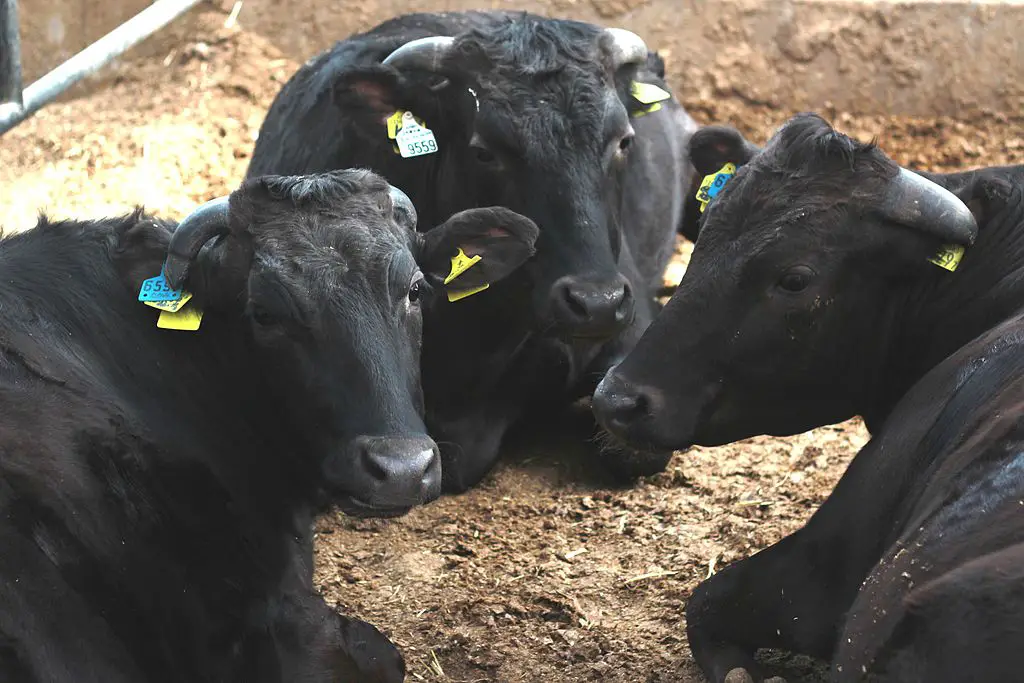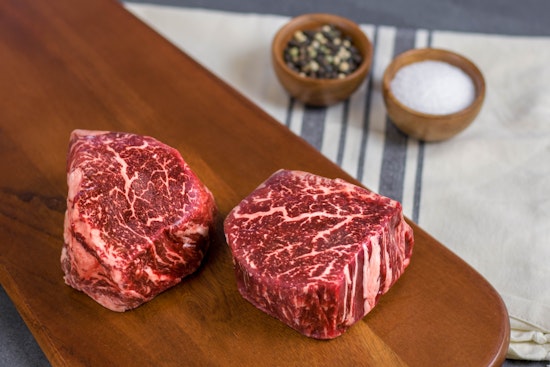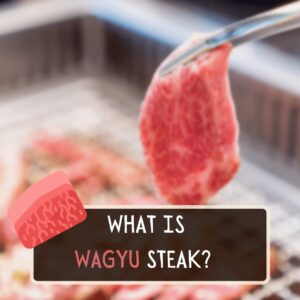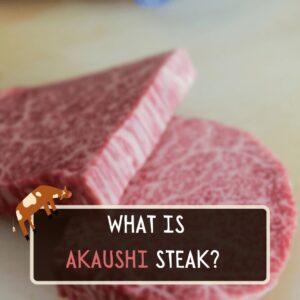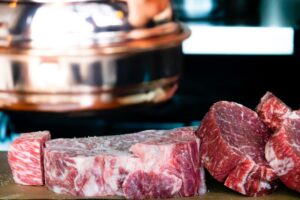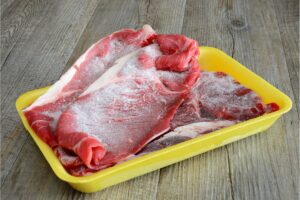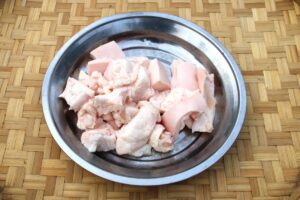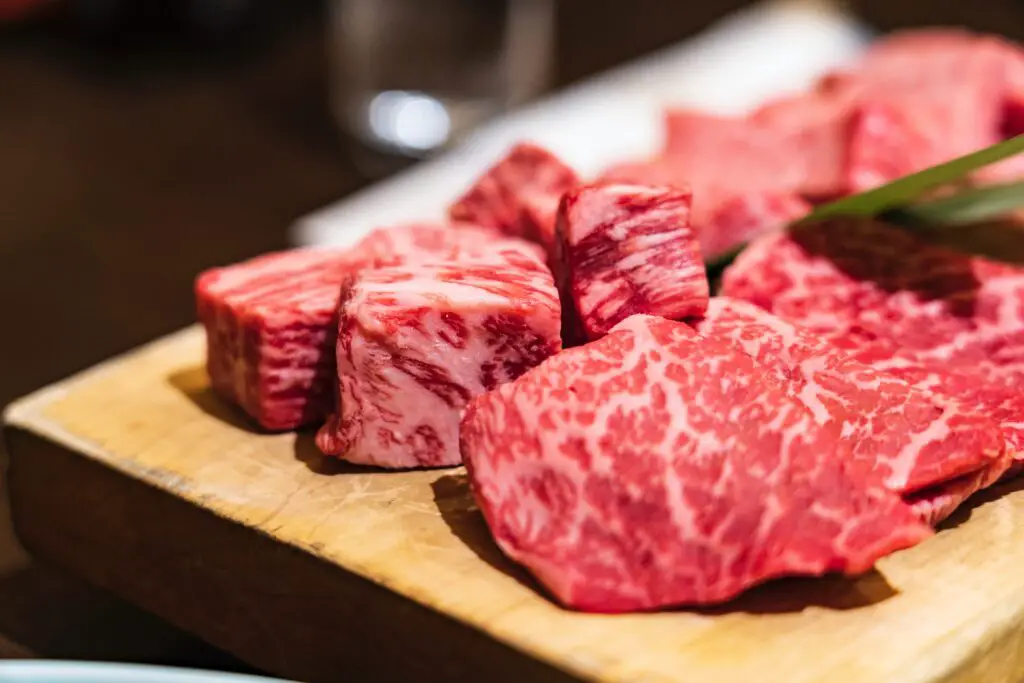I started this website to nerd with my friends about how we savor and value Wagyu. Since day one, the most common question I’ve received was wondering why I care that much about Wagyu.
Today, I’m going to dive deeper inside the Wagyu industry, because as it turns out, the way breeders deal with Wagyu reflects directly on its worldwide fame.
We’ll discuss things like, how much does a Wagyu cow cost? What are the most famous types? And how do those cows differ in the US? Let’s get going!
Featured image credit: By Japanexperterna, CC BY-SA 3.0
How Much Does a Wagyu Cow Cost?
The short answer? A Wagyu cow can be as expensive as $30,000! But there’s more to this than meets the eye.
First Things First, What Does “Wagyu” Mean?
In Japanese, the word “Wagyu” translates to “Japanese cattle”. You can actually try it on Google Translate!
As you can see, this is a generic name that doesn’t relate to a single breed. Instead, it describes a total of 4 breeds, each of which has a bunch of different sub-strains.
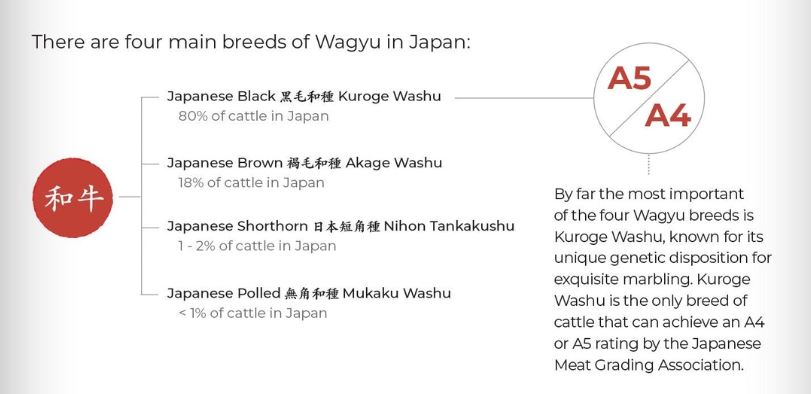
The first and most important is the Japanese Black cattle. This is the breed that produces the Matsusaka beef, one of the most acclaimed type. It’s also responsible for Kobe beef, an absolutely famous type in the US.
Sadly, the other Wagyu types aren’t famous outside of Japan. Nevertheless, I thought I should mention them. Maybe you can try them on your next visit there!
- Japanese Polled (Mukaku Washu)
- Japanese Brown (Akage Washu or Akaushi)
- Japanese Shorthorn (Nihon Tankaku Washu)
What’s So Unique About Wagyu?
Let’s clear out a ridiculously common belief. For some reason, people think that Wagyu gets constant massages and sip alcohol from time to time. Since this relaxes their bodies and mind, their meat can grow to be the greatest thing you’ve ever tasted.
Nice urban legend you got there, bro!
But obviously, this couldn’t be further from the truth. In an interesting interview, Yoshinori Nakanishi, a Japanese Wagyu breeder, shares the secrets behind those marvelous creatures.
“If I massaged my herd of 170,” says Nakanishi, “I’d have no time left for sleep.” Alternatively, he says that it’s all about proper care. Feeding them the right blend of grains and grass makes most of the difference. And without a doubt, making sure the cattle are raised in humane conditions participates in the meat quality.
The Japanese Government Plays a Significant Rule
If there’s something true about Japanese people, it’s that they don’t mess around. Japan knows the incredible value that Wagyu has in the whole world. For that reason, the Japanese government directly regulates Wagyu production.
To ensure the quality is always at its best, they invented a grading system. Each carcass is graded for two factors: yield and grade.
The Yield
As you might’ve deduced, the “yield” test measures the amount of cut meat compared to the overall weight of the cow. Grade “A” describes cattle that yielded 72% or higher of their total weight. “B” relates to percentages between 72% and 69%, while “C” describes anything below that.
The Grade
Next, the “grade” test gives a general impression of the overall quality of the cut meat. Calculating this value is a bit complicated; it takes the following scores into consideration:
- Beef Marbling Score (BMS)
- Beef Color Standard (BCS)
- Beef Fat Standard (BFS)
- Firmness & Texture
The resulting scores range from 1 to 5, with the latter being the best in terms of everything.
They Really Put These Data to Use
The grading data is primarily used to supervise market quality. Japan strictly forbids selling any Wagyu rated lower than A3. And surely, A5 meat is given the first priority. But lucky for us, they don’t stop there.
Upon birth, every cow is registered with a birth certificate that denotes its whole bloodline. That way, breeders can pinpoint mothers with superior properties, thereby giving them extra attention and care. That’s the main reason why Wagyu beef is always getting better.
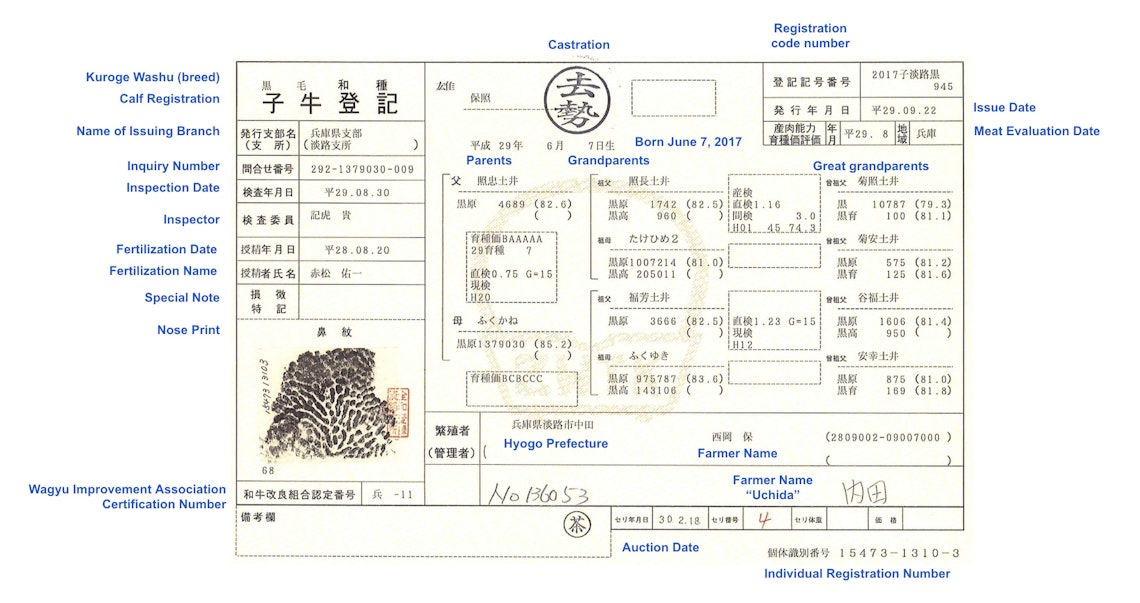
What About American Wagyu?
Wagyu cattle, among other livestock, are permanently banned for exports from Japan. It was readily imported by the US until the emergence of mad cow disease (BSE) in 2003.
That said, we can’t really say that America, or any other country for what it’s worth, has purebred Wagyu. The current cattle are thought to be the result of cross-breeding between Wagyu and Black Angus.
That’s not all bad, though. Yes, American Wagyu doesn’t have that amazing taste and texture of the Japanese competitor. But because it’s a lot cheaper, more people can afford to try it without emptying their wallets.
An American Wagyu cow can cost anywhere around $20,000. That’s why the 1 pound of meat doesn’t typically exceed $200.
Australia Has Got Something to Offer, Too
Australia is yet another huge producer for Wagyu. Australian Wagyu beef is usually priced at $150-$200 per pound. By extension, their cows cost around $15,000.
As you might expect, the reason behind this is the lower genetic purity. Australian Wagyu were bred from Angus and Holstein cattle. Not bad, but certainly inferior to the Japanese and American breeds.
Final Thoughts
Fun fact, the NBA legend Kobe Bryant was named after Kobe beef. It turns out that his father was fascinated by that cool name after bumping into it in a restaurant menu. Experts believe this was one of the reasons that put Wagyu into the global map.
Expensive or not, Wagyu is definitely an experience you should try. A 1-pound beef should cost around $300, but it would be enough for up to 10 people. And needless to say, such unique meat would be much tastier when shared with equally-unique people.
If you’re interested in a buying recommendation, you must give CrowdCow a try. They sell A5 Wagyu Ribeye trio, in addition to other tasty types. Best of all, they sell them in A5 quality, which is the best thing you can find on the market.

